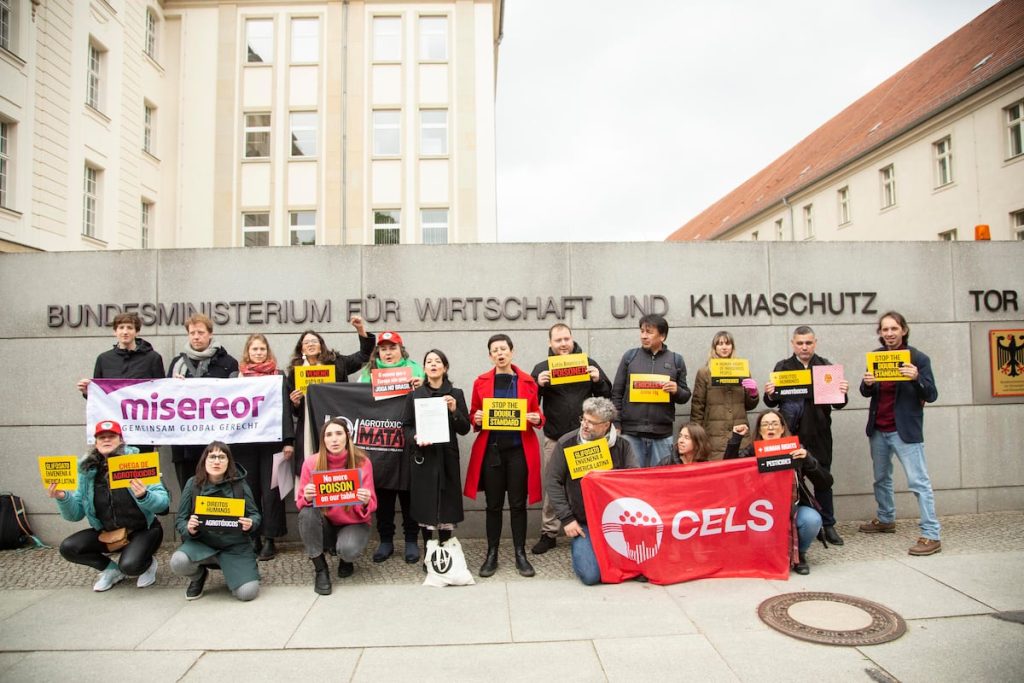In Berlin, a group of activists and specialists in international cooperation, agroecology, and human rights gather for the annual shareholders meeting of the pharmaceutical and food corporation, Bayer AC. The company has faced backlash after acquiring Monsanto in 2016, leading to thousands of lawsuits worldwide due to the harmful effects of glyphosate, a pesticide used in their products. The meeting takes place virtually, with activists like Sarah Schneider from the NGO Misereror speaking out about the impact of Bayer’s agricultural practices, highlighting cases such as a Paraguayan boy who died after being exposed to glyphosate. The company faces financial difficulties and a change in perception after the merger with Monsanto.
Similar scenes have been witnessed at other major corporations’ shareholders meetings, such as Repsol in Madrid and Endesa in Spain, where activists and representatives from organizations like Greenpeace and Pro Human Rights of Andalusia have addressed issues related to environmental impact, human rights violations, and social responsibility. Despite facing backlash from executives, these activists continue to advocate for change and accountability within these companies. Their interventions have sparked debate and awareness both within the meetings and in the broader public sphere.
To facilitate such activism, organizations like Shareholders for Change in Europe have been instrumental in enabling activists to participate in shareholders’ meetings and push for social and environmental responsibility from corporations. By pooling resources and collective action, these groups aim to hold companies accountable for their actions and advocate for transparency and ethical business practices. The movement traces its origins to previous social justice campaigns in the US and Europe, focusing on issues such as the Vietnam War and apartheid in South Africa.
The rise of ethical finance and socially responsible investment has further fueled this movement, with organizations like the Spanish Foundation for Ethical Finance playing a key role in promoting sustainable financial practices aligned with the UN Sustainable Development Goals. By engaging in shareholder activism, these groups aim to influence corporate decision-making and promote a more holistic approach to business that prioritizes the well-being of people and the planet over profits. Moreover, they seek to create a dialogue between stakeholders, policymakers, and financial institutions to address pressing social and environmental issues.
Through their interventions and advocacy, activist shareholders are not only seeking to effect change within individual corporations but also to raise awareness and promote a broader shift towards more ethical and sustainable business practices. By challenging the status quo and holding companies accountable, they aim to create a more equitable and sustainable economic system that prioritizes the needs of communities and the environment. Ultimately, their efforts demonstrate the power of collective action and highlight the importance of corporate social responsibility in shaping a more just and sustainable future for all.


